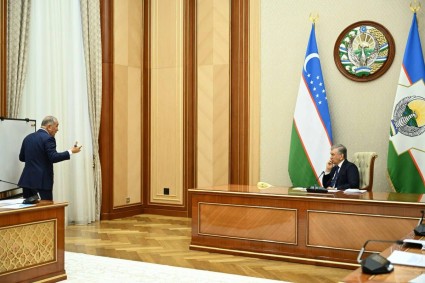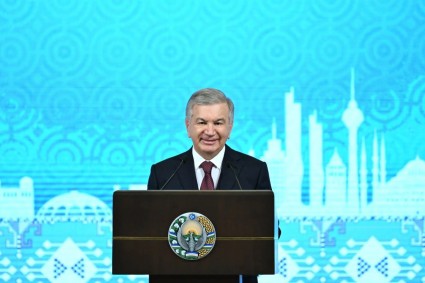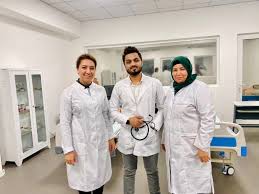An International Water Management Institute (IWMI-Regional Representative office based in Uzbekistan) led CGIAR workshop on the new research for development program “NEXUS Gains for the Aral Sea Basin: Realizing Multiple Benefits Across Water, Energy, Food and Ecosystems (Forests, Biodiversity)” – took place in Tashkent, Uzbekistan on 11 March – in one of the dynamically growing and developing region in the world.
The workshop was attended by around 70 people (including 15 women) from key line ministries and agencies (Water Resources, Economy, Industry and Poverty Reduction, and Agriculture), Academies of Sciences, national research institutions, regional organizations, Basin Authorities of the region, NGOs, private sectors and other development partners (ADB, EU, GIZ, FAO, UNDP, IOFS and SDC) including CG Centers (IFPRI, Alliance of Bioversity International and CIAT, and ICARDA).
During Friday’s event that ran between 10:00 and 16:00 hours (Uzbekistan time), the participants held discussions on reaching a common understanding and finding local solutions to the challenges facing water, energy, food and ecosystem transformation while exploring how the systems transformation for equitable food, energy and water security in Central Asia can be achieved.
The event started with keynote speeches from two Senators to introduce national priorities in dealing with complex water, energy and food nexus challenges in the Aral Sea Basin. It was then followed by Prof. Stefan Uhlenbrook (Program Lead) to provide an overview of NEXUS Gains, a global CGIAR initiative that examines water, energy, food and ecosystem (WEFE) systems in transboundary bread-basket basins in East Africa (Blue Nile basin), and Central (Aral Sea basin) and South Asia (Ganges and Indus basins). This was followed by Dr Kakhramon Djumaboev to share the preliminary plan of key activities for the Aral Sea Basin.
During the workshop, high-level participants shared their thoughts on opportunities to promote and institutionalize the WEFE Nexus approach and identify potential activities within the framework of the NEXUS Gains initiative in the Aral Sea Basin.
Honorable Senator Bakhodir Tajiev stated ‘Currently there is a big shortage of the water supply for agricultural needs in Central Asia. In this regard, the Aral Sea Basin undergoes the hardest consequences and is in need of urgent actions. It is highly important to ensure that water, energy and food nexus is included in the research areas of the Government strategy’. Honorable Senator Boriy Alikhanov noted the relevance of reducing the negative consequences of the Aral Sea crisis and the socio-economic, environmental rehabilitation of the Aral Sea region through a balanced approach of WEFE nexus.
Honorable Dr Rustam Karshiev (Deputy Minister of Water Resources) emphasized the need for active scientific measures to provide water-saving technologies for the agriculture sector while ensuring an inter-sectoral approach to this issue is of key importance. It is vital to mitigate the effects of climate change by introducing water-saving technologies to achieve the goals set by Uzbekistan’s Government.
NEXUS Gains introduces a holistic approach that utilizes systems thinking across WEFE resource, with a focus on forests and biodiversity for the ecosystem component, in the Aral Sea Basin. To help identify synergies and tradeoffs across the interconnected systems, NEXUS Gains will co-develop and share tools, guidelines, training and facilitate integrated systems analysis and research for development. This novel approach will strengthen climate resilience and lead to tangible benefits for rural men and women living in Central Asia. An integrated, systems-level approach is key to manage risks and support sustainability in all dimensions of natural resources management (economic, social and environmental). Professor Stefan Uhlenbrook stressed ‘that it is often the women, girls and vulnerable groups who face the great adverse consequences from non-integrated approaches of WEFE management. All members of society and the economy at large will benefit from implementing nexus approach including the environment’.
In the closing speech Dr Mohsin Hafeez stated “The NEXUS Gains project will provide practical, scientific evidence-based solutions and decision support system for WEFE resource by strengthening capacity of national stakeholders and key actors working in the region. The project outcome will lead to more coherent policies in the water-energy-food-ecosystems nexus, enable sustainable development pathways for all, and ensure that the policy changes are robust and resilient’.















